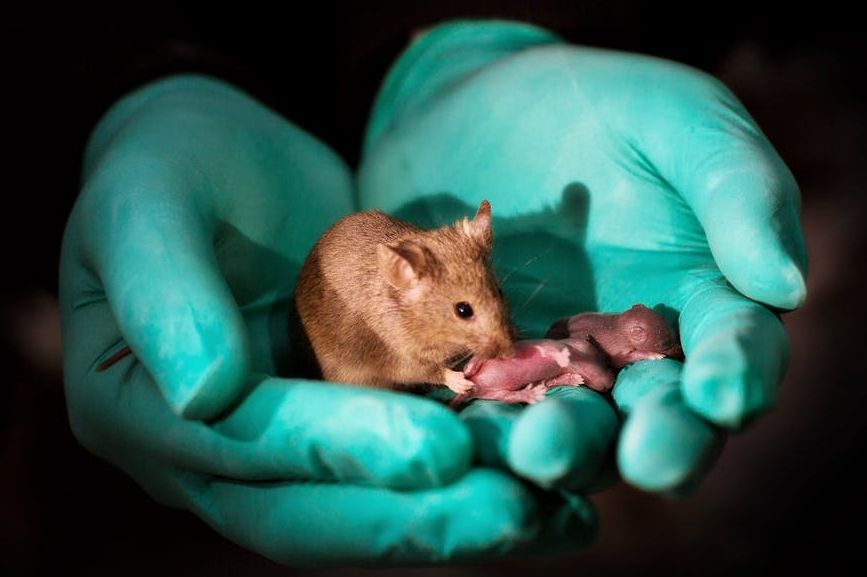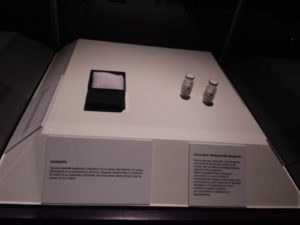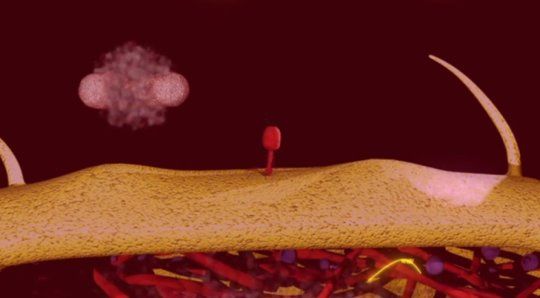Category: bioengineering – Page 195


Babies Born From Two Mothers Survive for First Time in Mouse Study
Everyone knows it takes a male and a female to make a baby. But what a new study from the Chinese Academy of Sciences suggests is that maybe it doesn’t. In a new study, the team of scientists reports they did the seemingly impossible: Produce healthy baby mice from two mothers. The researchers describe their achievement in a breakthrough new paper in Cell Stem Cell.
The single-sex parent phenomenon has been observed naturally in reptiles, fish, amphibians, and invertebrates, but it was never thought to be possible in mammals, who reproduce differently. But as the team describe in their paper, all it took was overcoming the genetic limitations that usually make same-sex parenting impossible. The team, which also included researchers from Northeast Agricultural University in Harbin, China, used a combination of stem cells and CRISPR precision gene editing to produce healthy mice from two mothers. Interestingly, they tried the same with embryos from two fathers, but those offspring only lived a few days.
In the paper, they describe the bizarre, ingenious way the mouse embryos were formed using an egg from one mother a stem cell from another mother. The team’s breakthrough was figuring out how to manipulate the DNA of the stem cell so that the babies wouldn’t have birth defects.

Bioquark Inc. — Real Bodies Milano Exhibit — Ira Pastor


Artificial enzymes convert solar energy into hydrogen gas
In a new scientific article, researchers at Uppsala University describe how, using a completely new method, they have synthesised an artificial enzyme that functions in the metabolism of living cells. These enzymes can utilize the cell’s own energy, and thereby enable hydrogen gas to be produced from solar energy.
Hydrogen gas has long been noted as a promising energy carrier, but its production is still dependent on fossil raw materials. Renewable hydrogen gas can be extracted from water, but as yet the systems for doing so have limitations.
In the new article, published in the journal Energy and Environmental Science, an interdisciplinary European research group led by Uppsala University scientists describe how artificial enzymes convert solar energy into hydrogen gas. This entirely new method has been developed at the University in the past few years. The technique is based on photosynthetic microorganisms with genetically inserted enzymes that are combined with synthetic compounds produced in the laboratory. Synthetic biology has been combined with synthetic chemistry to design and create custom artificial enzymes inside living organisms.

Movement for Indefinite Life Extension 2018 Drive to Stay Alive Message
The universe is filled with uncountable amounts of mystery, discovery, opportunity, experiences, marvels and more. So, let’s not die if we don’t have to.
It’s much harder to make the case that radical longevity cannot be engineered into our biology than that it can. Humanity engineers cells in countless ways all the time now, and our knowledge, capability and tools keep growing exponentially.
Now, a mainstream amount of demand to create a bustling global industry of life extension R&D is the only thing standing between you and the ability to live indefinitely.” — Eric Schulke
Fifteen thousand years worth of Netflix are watched every day. Fifteen billion dollars are spent on the Super Bowl and fifteen billion dollars are spent on Valentine’s day. Those aren’t bad things but we need some perspective. Survival is humanity’s main and oldest occupation. We have what it takes to survive if we pay attention and get with the program.
“Yes, the future is transhumanism. Who would ask ‘Is the future being alive and prosperous?’ As if anyone should expect humanity to work for a future of hardship and death.” — Ray Keyes
People suffer in great existential voids these decades, not only do they need life, they need deep meaning and purpose. The movement for indefinite life extension is giving them both.


Switching Off ALPL Gene Contributes to Bone Aging
A recent open-access mouse study published by Xi’an Institute of Tissue Engineering and Regenerative Medicine scientists in the journal Bone Research describes how the ALPL gene affects bone aging and suggests that metformin might constitute a viable therapeutic option to prevent it [1].
Study abstract
Mutations in the liver/bone/kidney alkaline phosphatase (Alpl) gene cause hypophosphatasia (HPP) and early-onset bone dysplasia, suggesting that this gene is a key factor in human bone development. However, how and where Alpl acts in bone ageing is largely unknown. Here, we determined that ablation of Alpl induces prototypical premature bone ageing characteristics, including bone mass loss and marrow fat gain coupled with elevated expression of p16INK4A (p16) and p53 due to senescence and impaired differentiation in mesenchymal stem cells (MSCs). Mechanistically, Alpl deficiency in MSCs enhances ATP release and reduces ATP hydrolysis. Then, the excessive extracellular ATP is, in turn, internalized by MSCs and causes an elevation in the intracellular ATP level, which consequently inactivates the AMPKα pathway and contributes to the cell fate switch of MSCs.